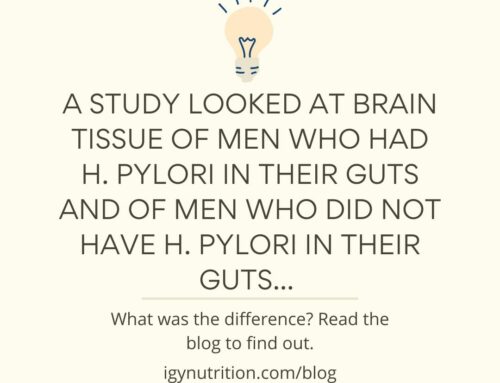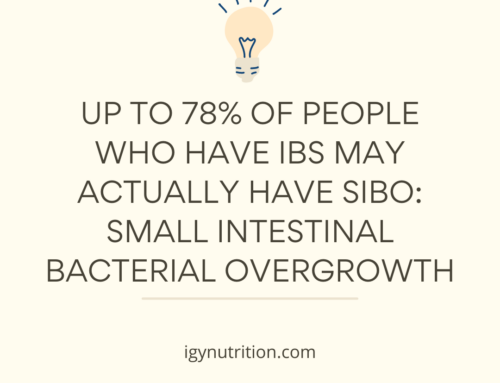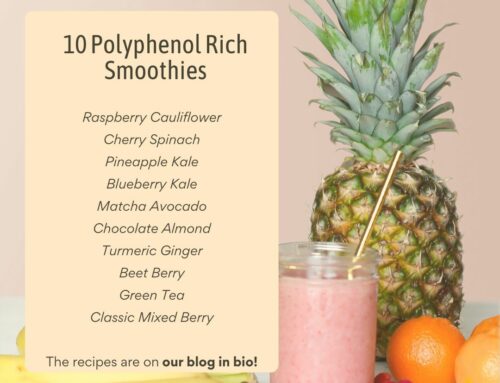The microbiome is a complex ecosystem of thousands of different types of microbes living in or on the human body. From yeasts to bacteria to amoebas, (weird, right?) some help us, some harm us, and some do neither.
In light of its complexity – how on earth do we go about changing the microbiome for our benefit?
Microbiome Interventions
You may have heard of microbiome interventions involving pre and probiotics, antimicrobial protocols, enteric antibodies, or antibiotics before.
If you’re dealing with dysbiosis-induced digestive issues, you’ll likely need to employ some of these hardcore interventions with the help of a healthcare professional.
But none of these interventions will adequately address dysbiosis without the help of a gut-supporting diet.
Let’s take a look at how diet can influence the microbiome’s composition.
Diet and the Microbiome
No matter where you’re at on your gut health journey – whether you’ve got SIBO and are suffering or are decently healthy but want to strengthen your gut – improving your diet quality will benefit your gut health.
Diversity of plants
The first step to gut health is consuming various plant foods – ideally, at least 30 different types per week.
Scientists have shown that the best indicator of gut health is microbiome diversity. That’s because each type of bacteria in your gut benefits your body differently.
So, even if you have enough good bacteria overall, increasing the diversity of that good gut bacteria will improve the scope of beneficial actions your gut bacteria can take – which is just as important!
How do you increase the diversity of your good gut bacteria? It’s pretty simple: eat lots of different kinds of plant foods!
Plant foods contain fuel for good bacteria and good bacteria themselves. Each different type of plant you consume will provide unique microbiota strains to your gut and provide your helpful gut bugs with something unique to use for fuel.
Like us, our gut microbes need a wide variety of fuels to munch on to perform their best. Ensuring you provide them with a diverse array of plant fibers – what they like to eat – will boost their strength and boost your microbiome.
The American Gut Project, a study of over 10,000 people’s microbiomes, found that no matter what diet a person ate – be it vegan, vegetarian, keto, whatever – the diversity of the food they ate was the most crucial contributor to their gut health.
The participants who ate more than 30 different plant types per week had the most diverse gut microbiomes – so aim for that!
Vitamin-rich foods
It turns out those gummy vitamins your mom gave you as a kid weren’t such a bad idea!
Vitamins regulate the microbiome. Consuming too few of specific types of vitamins can slow down your gut healing process and potentially even prevent it!
Which vitamins are we talking about, and what do they do, you’re asking? Let’s take a look.
Vitamin B12 is a modulator of the gut microbiome. It also contributes to the proper secretion of stomach acid, which is key to healthy digestion.
Not having enough vitamin B12 may prevent the modulation of the microbiome that’s needed to rebalance it. It may also prevent food from being fully digested since it’s so essential to stomach acid production. Undigested food may negatively impact the microbiome’s composition.
Zinc is also vital for microbiome balance; a deficiency of it may cause dysbiosis. A zinc deficiency could significantly slow down your healing process since it causes the thing (dysbiosis) you’re trying to beat in the first place!
Vitamin D is key to strengthening your intestinal barrier, and like B12 and Zinc, it regulates the gut microbiome!
A robust intestinal barrier is also crucial for gut health. A weak intestinal wall is associated with intestinal permeability, which may cause symptoms like bloating, constipation, diarrhea, and gas.
Are you dealing with constipation? This one’s for you: magnesium! Like the other three, magnesium modulates gut microbiota, so of course, it’s vital to rebalancing your gut. But magnesium deficiency may cause chronic constipation, which is counterintuitive to healing from dysbiosis.
And lastly, Omega 3 fatty acids are critical to a healthy gut as well. Like vitamin D, they help strengthen the gut barrier, modulate gut bacteria, and reduce inflammation!
Dysbiosis often exacerbates inflammation. Omega 3s will speed up the process of undoing the inflammatory damage that the bad guys did.
With these extra resources, your body will be even better equipped to overcome dysbiosis and repair the damage it caused with your good bacteria’s postbiotic production.
Avoiding the “SAD”
Here comes everyone’s least favorite part of diet advice: what to avoid. SAD stands for the Standard American Diet, filled with highly processed foods, unnatural additives, and condensed animal fats.
Don’t fret – we love a juicy cheeseburger with fries just as much as you do! And you don’t necessarily have to give it up.
There are a few ingredients/foods that harmful bacteria love to eat. By eating them, you’re just fueling their growth – the opposite of what you want when trying to overcome dysbiosis.
They might surprise you! Here they are: industrialized seed oil, processed sugar, alcohol, additives, and antibiotic-fed animal products
First up is industrialized seed oil. These oils cause lots of inflammation in the gut — and we mean lots of inflammation.
Remember, reducing inflammation is necessary for healing the intestines from dysbiosis. For that reason, it’s imperative to avoid foods that cause inflammation, like these oils. We’d even rather see you have butter than industrialized seed oil!
Industrialized seed oils include grapeseed oil, canola oil, vegetable oil, soybean oil, safflower oil, sunflower oil, and cottonseed oil. Instead, stick to unrefined avocado oil, extra virgin olive oil, or unrefined coconut oil.
Next is processed sugar. Processed sugar is also inflammatory in the gut. Plus, it produces adverse manipulation of gut bacteria – which would work to undo your progress!
What’s the difference between processed sugar and sugar you can have? Stay away from white sugar, brown sugar, honey, maple syrup, and even low-calorie sweeteners other than monk fruit and stevia. Don’t worry about natural sugar in fruits.
Alcohol is also adverse to the gut healing process since it’s inflammatory. While healing your gut, try to stay away from it as much as possible! If you do drink, try your best to consume sugar-free drinks.
An interesting side note is that a hangover is partly due to dehydration, but it’s also due to a microbiome disruption! When we’re rebuilding the gut, we want to avoid that disruption as much as humanly possible.
Additives are also essential to avoid. Take a look at the ingredient list on the nutrition facts panel of your food. See anything you can’t pronounce? A good rule of thumb is avoiding those. It isn’t a perfect rule, but it usually does the job.
Emulsifiers like soy lecithin, preservatives like potassium sorbate, and other additives have been shown to impact the gut microbiome and nutrient signaling negatively. You’re better off leaving those out of your diet.
Last up is antibiotic-fed animal products. They’re highly inflammatory, so we want to limit them as much as possible during your healing journey. Look for “antibiotic-free” on the labels.
See? Cheeseburgers aren’t off the table. You could cook an organic, antibiotic-free beef patty and a slice of cheese in some olive oil, slap it on an additive-free bun, and you’re good to go!
Remember, these foods don’t have to be avoided forever. Try your best to minimize them until you overcome dysbiosis.
The Takeaway
Eating for gut health doesn’t have to be painful. Focus on these steps to fuel your beneficial gut bacteria and suppress your harmful gut bacteria:
– Eat 20-30+ different types of plant foods per week
– Consume plenty of (or supplement with) magnesium, omega 3, vitamin D, zinc, and vitamin B12
– Avoid industrialized seed oils, antibiotic-fed meats, processed sugar, alcohol, and additives
Tag us in photos of your digestive health journey at @igynutrition on Instagram! Happy mixing.




